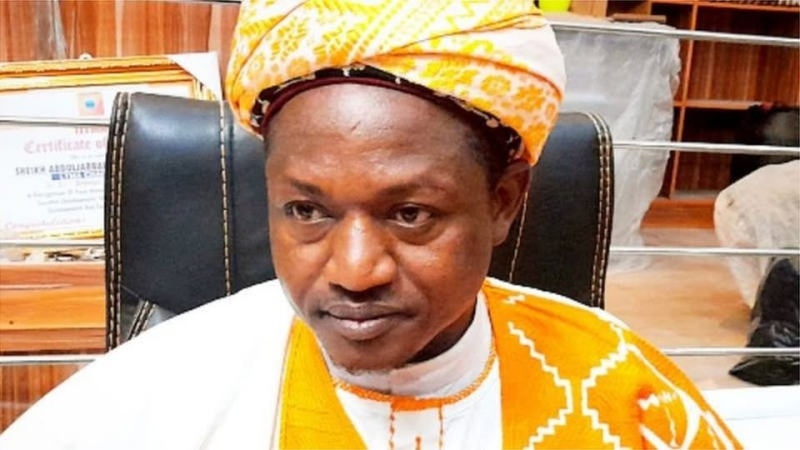
Reported by: Ime Richard Aondofa | Edited by: Henry Owen
Abuja / Kano, Nigeria — Calls are mounting for the release of Sheikh Abduljabbar Nasiru Kabara, a prominent Islamic scholar currently detained in Kano State. Sowore describe his continued imprisonment as a sign of religious intolerance in the country.
Campaigners questioned the delay in his release, asking, “How about the long-overdue freedom of Sheikh Abduljabbar Nasiru Kabara?” Plans to meet him in prison were blocked, prompting criticism: “I was supposed to meet him in prison, and it is heartbreaking and utterly unacceptable that a religious scholar remains behind bars…” His supporters assert that his detention stems not from criminal behavior but because “…his teachings or interpretations differ from those preferred by those in power in Kano State.” Campaigners are calling for an end to targeted religious oppression: “The era of religious persecution in Nigeria must end NOW.”
Sheikh Abduljabbar was arrested in July 2021, facing charges of blasphemy and incitement brought by the Kano State Government. In December 2022, an Upper Sharia Court in Kano found him guilty and sentenced him to death by hanging under the state’s Sharia Penal Code. The court also ordered the confiscation of his two mosques and a personal library of 189 books.
Despite the sentence, Sheikh Abduljabbar retains the right to appeal, including taking the matter to Nigeria’s Supreme Court. In October 2025, he was transferred from Kano Correctional Centre to a federal prison in Abuja, reportedly for administrative reasons.
He is associated with the Qadiriyya Sufi order and is known for his critical interpretation of certain Hadiths, which has faced strong opposition from conservative Salafi groups. Some observers suggest that political and religious rivalry may have played a role in his prosecution.
International watchdogs, including the US Commission on International Religious Freedom (USCIRF), have highlighted his case as a concern for religious freedom in Nigeria, describing him as a religious prisoner of conscience.
Experts warn that the punishment for dissenting religious views could have a chilling effect on scholars and the wider religious community. Sheikh Abduljabbar’s case continues to draw attention as a symbol of the tension between religious interpretation and strict blasphemy laws in Nigeria.
📩 Stone Reporters News | 🌍 stonereportersnews.com
✉️ info@stonereportersnews.com | 📘 Facebook: Stone Reporters | 🐦 X (Twitter): @StoneReportNew | 📸 Instagram: @stonereportersnews


Add comment
Comments